Do you often wonder how it would feel if you ceased to exist? How “dying” can make things easier for you? But even though you may think about suicide, you don’t really actively plan to do anything about it. Then you may be experiencing passive suicidal ideation.
NOTE: If your mind is riddled with intrusive thoughts about ending your own life, then make sure to seek professional help immediately.
Let’s talk about suicide
I don’t want to do this anymore.
I feel so tired all the time.
Nothing matters to me anymore.
How I wish I didn’t wake up tomorrow.
Wish I’d drop dead right now.
If only I could end my life, I could finally find some peace.
Sounds familiar? These are suicidal thoughts and NOT normal by any means.
But nope.
We don’t talk about suicide. We should. But we don’t. Why? Because we fear being seen as weak, vulnerable, incompetent and “mentally ill.” All these labels and stigmas stop us from openly talking about having suicidal thoughts with trusted loved ones. People who can help us gain a new, more positive outlook on life.
But despite how much we try to hide our suicidal thoughts, we still have them. It’s unwanted and intrusive, but it’s there. You feel tired. You feel exhausted. You don’t want to do this any longer. You wonder how great it would be if you didn’t have to wake up tomorrow morning. All the stress, frustration and sadness would just disappear and an all pervading peace will prevail everywhere.
But just like in life, shortcuts don’t work in death either. Suicidal ideation is planning your own death. No wonder it is so hard to talk about it. While intrusive and passive suicidal ideation may rear its ugly head at times, what is of utmost importance is that you talk about your thoughts and seek help from loved ones and mental health professionals.
Whether you are having active or passive suicidal thoughts, the sooner you learn to identify the warning signs and develop strategies to deal with such difficult thoughts, the sooner you will be able to seek the help you need and live a fuller life.
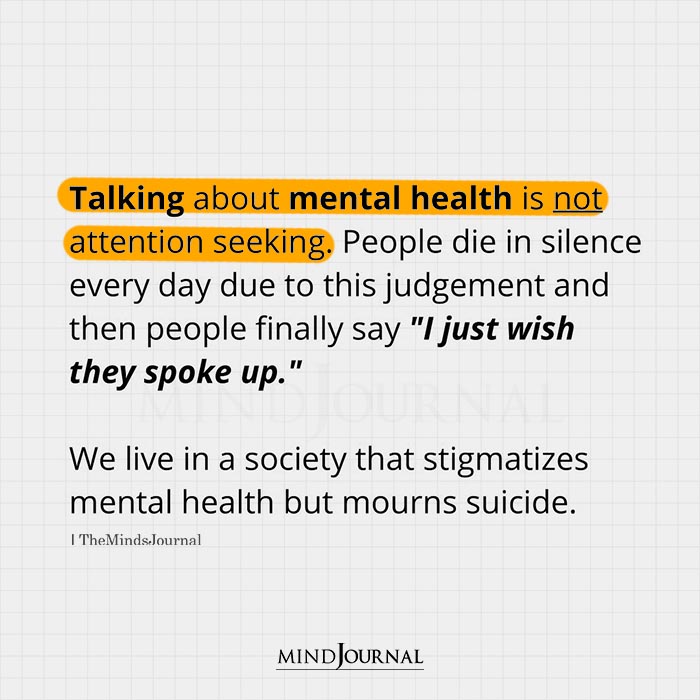
What is passive suicidal ideation?
To put it simply, passive suicidal ideation is having thoughts about suicide, but not actively planning or pursuing it. It acts as a coping mechanism that allows us to deal with excessive stress, depression, burnout, fatigue, exhaustion and lack of satisfaction in life.
While you may have consistent, pervasive and frequent suicidal thoughts, those are just that – thoughts. You do not intend to actively act on those thoughts nor have you made any plans about it.
Related: If You’re Having Suicidal Thoughts, Please Read This
As you don’t really plan to intentionally harm yourself, your passive suicidal thoughts are limited to indirect thoughts of death mainly because you feel overwhelmed with your responsibilities and life’s challenges. You believe the world would be better off without you and it would be so great if you didn’t have to wake up tomorrow morning.
However, while passive suicidal ideation may not appear to pose any immediate risk of harm, it is still important that you address your suicidal thoughts as it may worsen over time and result in an increased risk of suicide.
If you or someone you know is experiencing such suicidal ideation, it’s important to seek professional help as effective treatment can help to improve your thoughts and emotions.
Are you experiencing passive suicidal ideation?
Identifying the symptoms of passive suicidal ideation can be challenging as it is often a recurring but fleeting thought that you don’t actively pursue. You may think about disappearing forever and not deal with the troubles of the world all the while planning for a party on the weekend. This can not only lead to confusion and mixed emotions, but can also make it difficult for you to understand what you are actually experiencing.
This is why, identifying the signs of passive suicidal ideation is extremely important. Here are some of the most common warning signs of suicidal ideation that you need to be aware of –
- You think about death or ending your life very often, even though you may not plan to act on them
- You often talk about (mostly to yourself) how great it would be if you weren’t born, or if you died and how no one would miss you
- You prefer to stay alone, avoid others and socially isolate yourself
- You act recklessly and engage in risky behaviors like consuming excessive drugs or alcohol
- You feel extremely stressed, anxious and depressed and feel overwhelmed easily
- You believe your life will only get worse and struggle with feelings of helplessness & hopelessness
- You feel detached from everything – your career, social life and relationships
- You do not hesitate to give away your possessions
- You experience feelings of self-hatred and lack self-love
While these signs and symptoms are not necessarily an indicator of passive suicidal ideation, these can help you get a better idea about what you are experiencing.
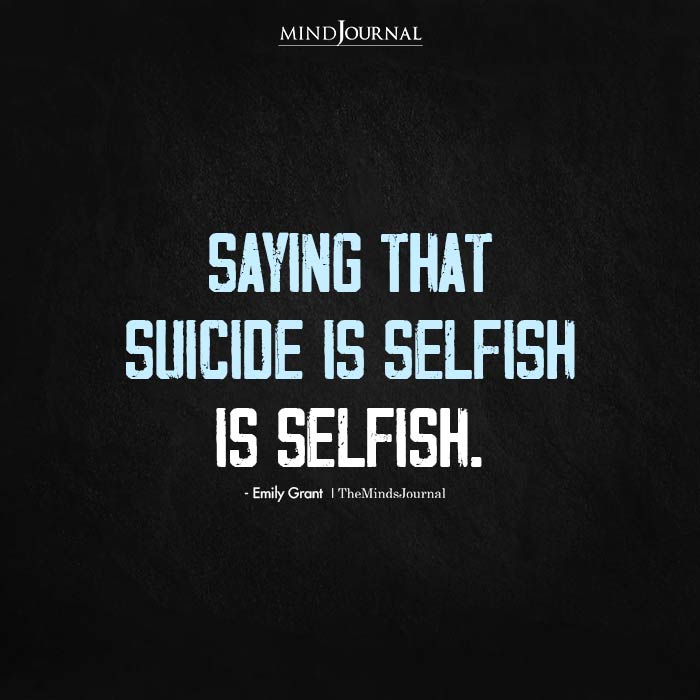
Why do we have passive suicidal ideation?
Passive suicidal thoughts are closely associated with certain mental heath conditions such as anxiety, depression, bipolar disorder etc. Hence, it may be triggered by traumatic life experiences or stressful life events, such as –
- Loss of a job or unemployment
- Divorce or a breakup
- Past trauma or abuse
- Loss of a loved one
- History of mental illnesses
- Family history of suicide
- Substance abuse
Related: 8 Risk Factors for Suicide: Major Signs Of Suicidal Behavior
There can be many other causes of passive suicidal ideation, such as –
1. Depression
Suicide is closely linked with depression. Studies have shown that “Depression is strongly related to both suicidal ideation and attempt,” where “48% reported life-time suicidal ideation and 16% reported a life-time suicide attempt,” is linked to life-time depression.
Hence, someone experiencing depressive symptoms may have suicidal ideation without making any active plans to harm themselves. This is often known as passive suicidal depression.
While you may not be in any immediate danger, undiagnosed depression can seriously affect one’s physical and mental health and lead to a serious risk of suicide.
2. Coping mechanism
Passive suicidal ideation is often a result of chronic stress, excessive workload, family responsibilities, relationship issues and dissatisfaction with personal life. Hence, it may act as a coping mechanism that enables us to deal with difficult situations and negative emotions like stress and anxiety.
When feeling overwhelmed, thoughts of death and suicide can offer of sense of comfort, relief and escape.
3. Trauma response
Suicidal thoughts without any intention to carry them out can also appear as a response to traumatic events. Experiencing trauma can make it difficult for us to cope with the aftermath. This can lead to passive suicidal thoughts as a means to manage our emotions and to regain some sense of control.

Related: Suicide Warning Signs: Suicidal Behavior That Are Easy To Miss
Active vs passive suicidal ideation
While suicidal thoughts, regardless of whether you plan to act on them or not, are certainly a very serious issue, there is some difference between passive and active suicidal thoughts.
Active and passive suicidal ideation are two distinct types of thoughts related to suicide. Passive suicidal thoughts are typically a general wish to be dead or thoughts about death without a specific plan or intent to harm oneself. This can often sound like –
“I wish I didn’t wake up tomorrow morning.”
While such thoughts can be overwhelming, these do not necessarily result in self-harm or suicide attempt.
However, active suicidal ideation typically results in a detailed plan where the person intends to end their life or harm themselves. Active suicidal ideation is a lot more severe and involves immediate risk of death. This may often sound like –
“I want to die and I know how to do it.”
While both types of thoughts are concerning, active suicidal ideation requires more immediate attention as it poses a higher risk of self-harm. It is important to seek help from a mental health professional or medical provider if you or someone you know is experiencing any type of suicidal ideation.
Related: Suicide Is Never The Answer: 6 Things To Know When Ending Life Seems Like The Best Option
How to cope with passive suicidal ideation
If you or someone you know is experiencing passive suicidal ideation, then here are some coping strategies that can help you manage your thoughts and feelings-
1. Challenge your negative thoughts
Suicidal ideation can often be caused by persistent negative thought patterns which can affect our mindset and attitude. Identify your negative thoughts and try to replace them with positive or neutral ones.
2. Talk to a trusted loved one
Reach out to someone you trust, such as a friend, family member, or an online community. Share your thoughts and feelings and let them know how you are feeling.
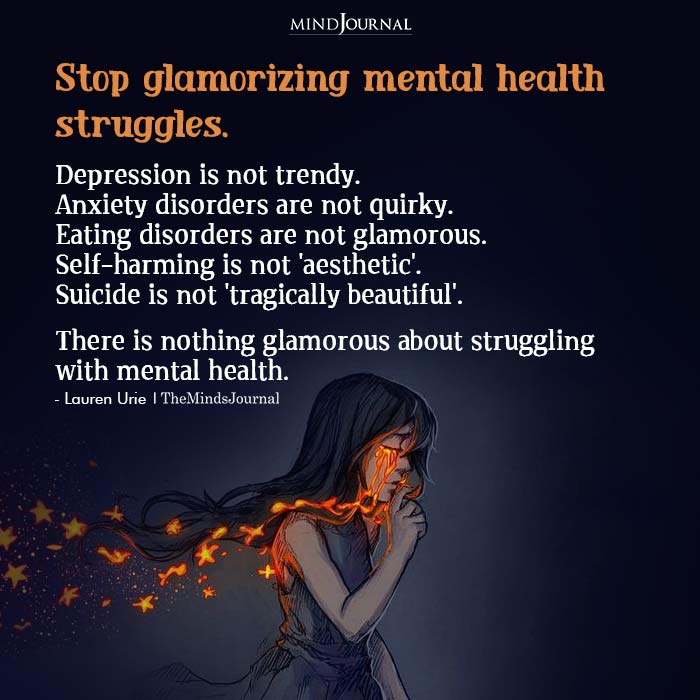
3. Seek professional help
Consult a mental health professional, such as a therapist or psychiatrist, who can help you manage your thoughts and develop coping strategies. You can also call a suicide prevention hotline if you are in crisis. They may recommend therapy, medication, or other treatments to help manage your symptoms.
Related: How To Help Someone Who Is Self-Harming
4. Practice self-care
Learn how to love yourself, and take care of yourself by meeting your needs and desires, taking enough rest, eating nutritious food, exercising, and engaging in activities you enjoy. Self-care can help improve your mood and reduce stress.
5. Avoid substances
Substance abuse, such as excessive consumption of drugs and alcohol, can worsen depression and increase the risk of suicide. If you are struggling with addiction, make sure to seek professional help.
6. Stay active
Engage in activities that you generally enjoy and find pleasurable. Do things that can help you find a sense of purpose in life such as volunteering. This can help you feel more connected to life and reduce negative feelings, such as hopelessness.
7. Meditate
Learn how to practice mindfulness meditation as it can help you to relax your mind and reduce negative thoughts and emotions such as anxiety, depression and suicidality. Simply bring your awareness to the present moment.
Studies have shown that brief mindfulness meditation can help to “reduce suicidal ideation, stress, and sleep disturbance for individuals with high suicidal ideation and it may implicate effective suicide prevention strategy.”
Related: How To Help A Person Who Is Feeling Suicidal
8. Have a safety plan
Develop a plan with a mental health professional or a trusted friend or family member that outlines steps to take if you experience suicidal thoughts or feelings. This can help you feel more in control and reduce the risk of harm.
9. Stay safe
If you have a plan or intention to harm yourself, seek immediate medical attention. You can call emergency services or go to the nearest hospital emergency room. Remember, there is help available, and you don’t have to suffer alone.
Asking for help can be difficult, but it’s a sign of strength, not weakness.
Suicide is a serious issue
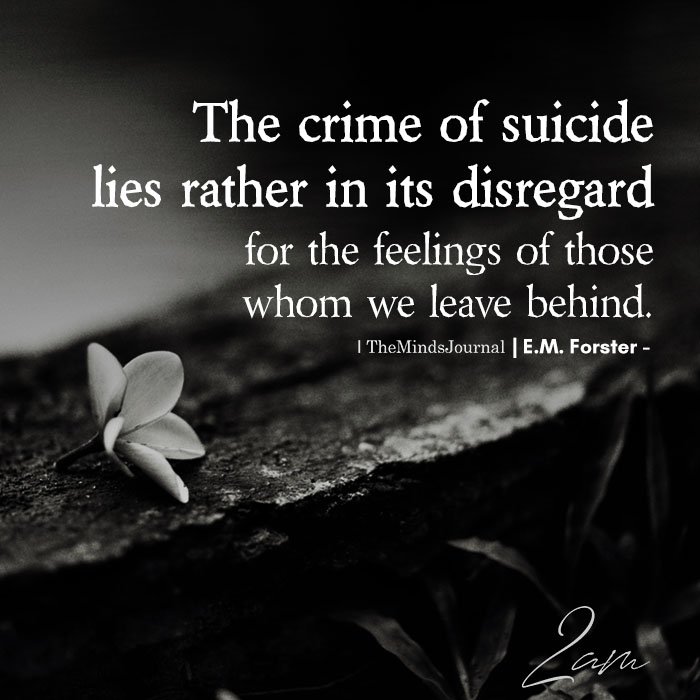
Passive suicidal ideation is a serious issue which must not be ignored or taken lightly. While it may feel overwhelming and scary, it is important to know that you do not have to face this alone. By reading this article and reaching out for help, you are taking the first step towards healing and recovery.
Remember that your thoughts and feelings are valid, and there is no shame in seeking support from loved ones or a mental health professional. With the right help, you can learn to manage your symptoms and develop the tools you need to overcome such negative thinking and live a more positive life.
It takes courage to ask for help, but the rewards of a life worth living are worth the effort.
Related: How To Heal Your Most Debilitating Core Wounds


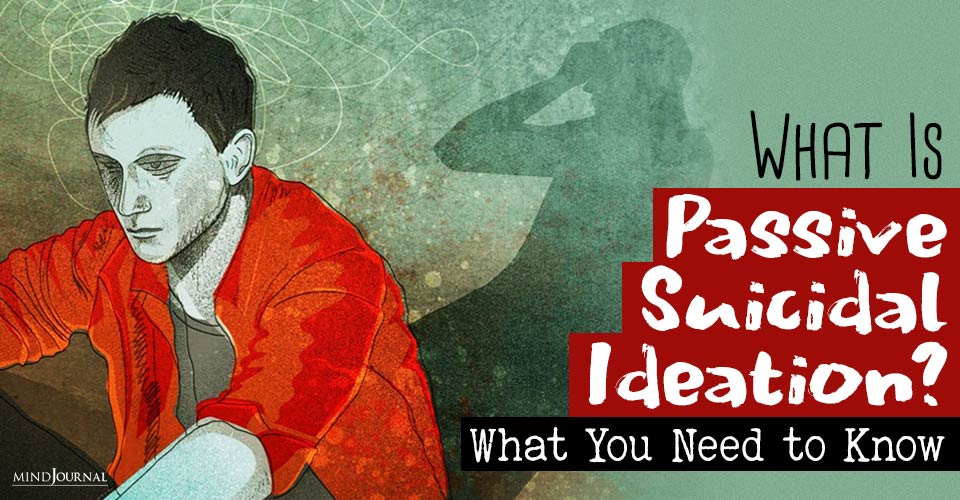







Leave a Reply